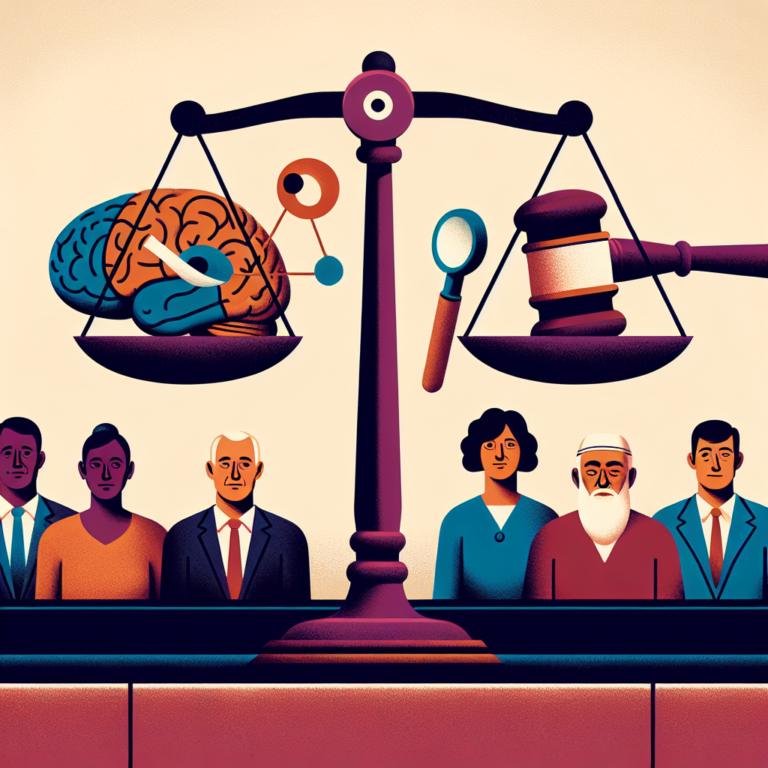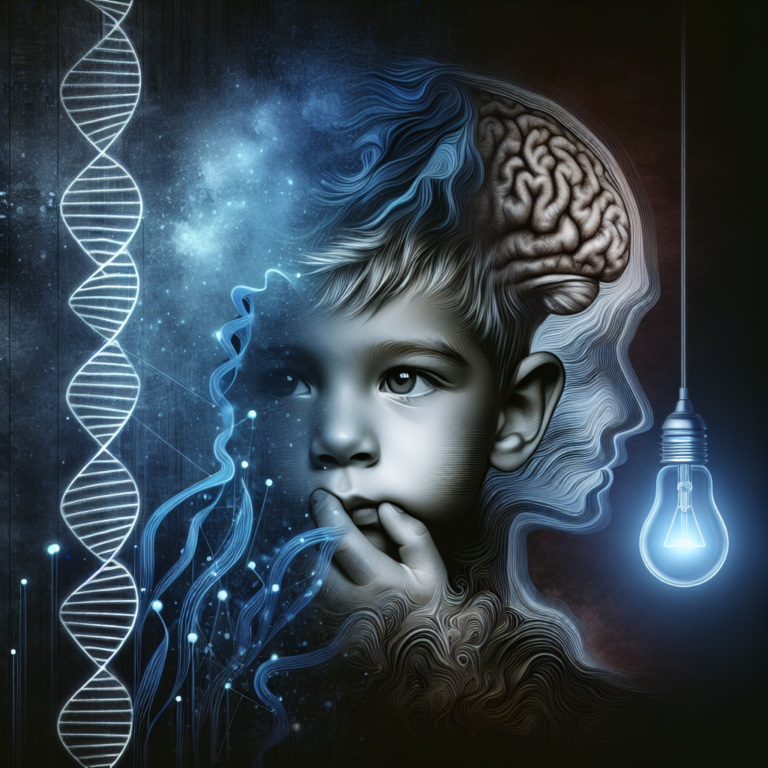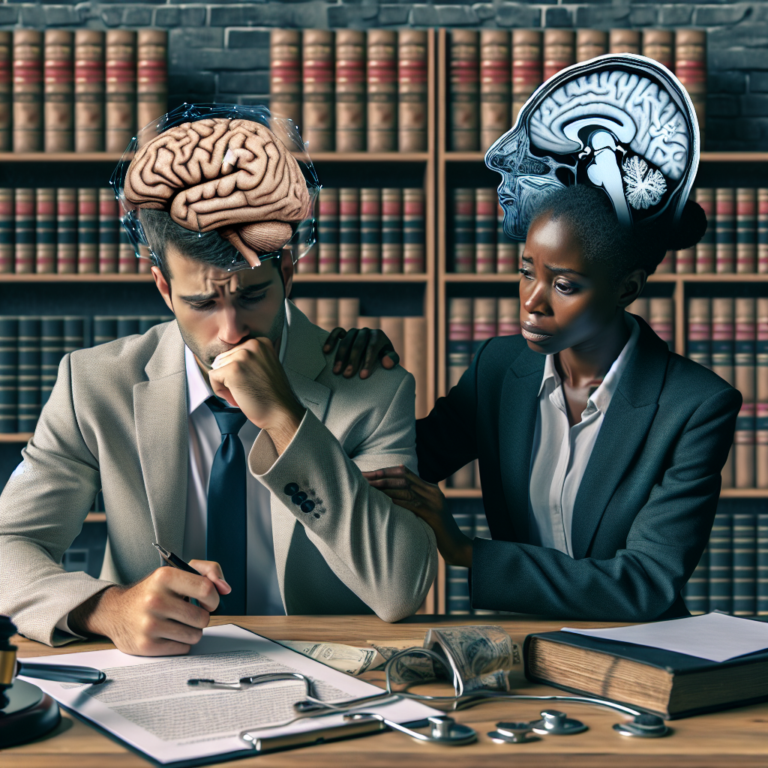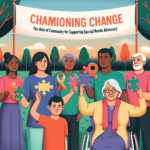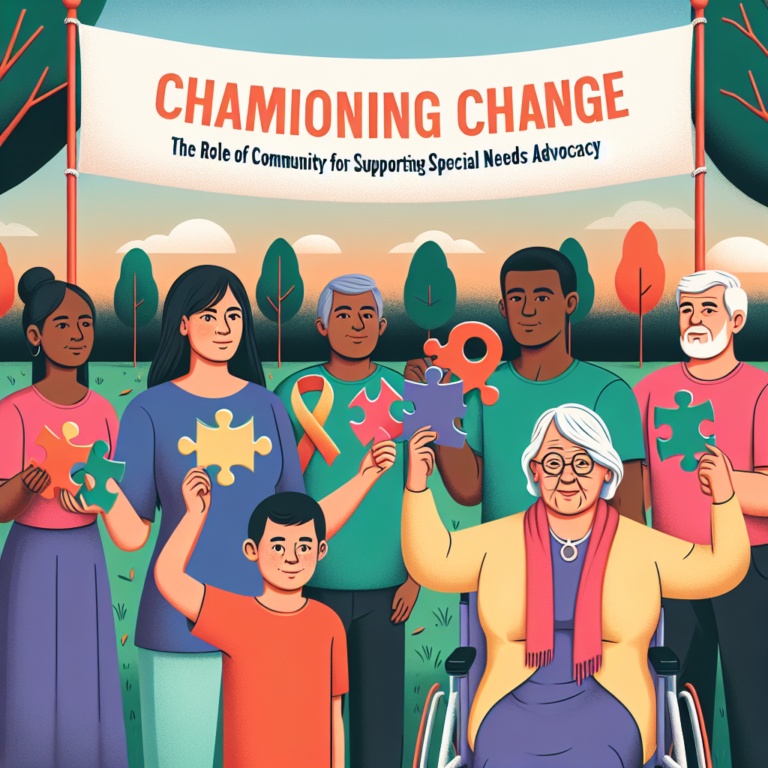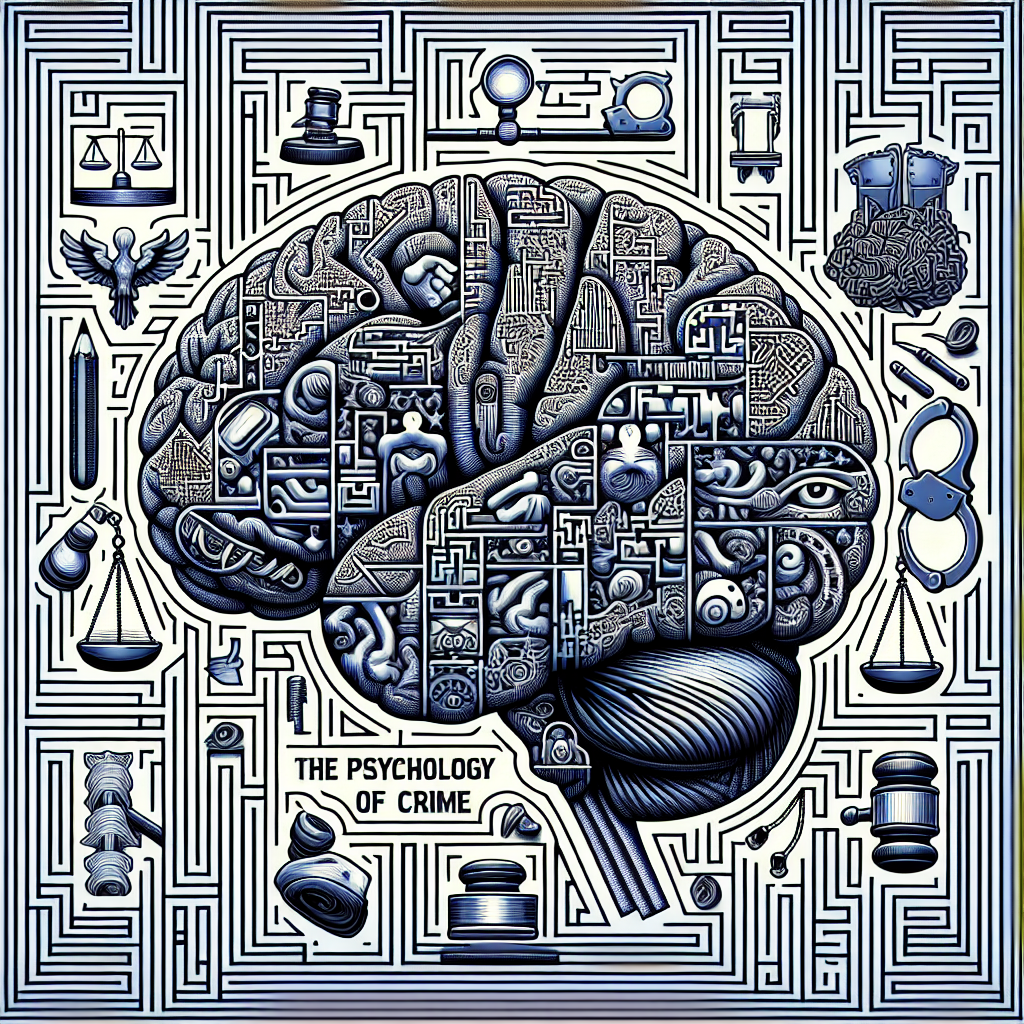
Introduction
Understanding crime goes beyond the mere act of wrongdoing; it delves into the depths of human psychology. As we navigate the complexities of societal behavior, the phrase "The Psychology of Crime: How Mental State Influences Offending Behavior" becomes a critical lens through which we can explore the underlying motivations and mindsets of offenders. A staggering statistic reveals that nearly 70% of incarcerated individuals display some form of mental health issue. This raises urgent questions: How does mental state shape the propensity to commit crimes, and what can we do to mitigate these influences?
In this article, we will explore this essential concept, using real-world examples and thorough analysis to shed light on how mental states, from trauma and personality disorders to addiction and intellectual disabilities, can influence criminal behavior.
The Relationship Between Mental State and Criminal Behavior
Understanding Mental Health Disorders
Before diving into the specific ways that mental states influence criminal behavior, it’s crucial to understand the basics of mental health disorders. These disorders can manifest in various forms, including anxiety, depression, schizophrenia, and personality disorders.
Table 1: Common Mental Health Disorders Among Offenders
| Disorder | Prevalence (%) | Typical Symptoms |
|---|---|---|
| Schizophrenia | 10-15 | Hallucinations, delusions |
| Bipolar Disorder | 5-8 | Mood swings, impulsivity |
| Antisocial Personality | 40-70 | Lack of empathy, criminal behavior |
| Substance Use Disorder | 20-40 | Dependency, impaired judgment |
These disorders can skew perceptions of reality, control impulses, and distort judgment, significantly influencing decisions related to criminal acts.
The Role of Trauma
Trauma often plays a pivotal role in shaping an individual’s mental state, particularly in relation to criminal behavior. Studies indicate that individuals who have experienced severe trauma, especially during formative years, are at greater risk of engaging in criminal activity.
Case Study: The Impact of Childhood Trauma
Johnny, an individual who grew up in a violent household, began to exhibit criminal behavior in his early teens. He was arrested for theft and assault, stemming from an environment where aggression was normalized. In therapy, he revealed a pervasive sense of insecurity and emotional distress tied to his childhood experiences.
Analysis: This case highlights how trauma can lead to maladaptive behaviors, such as aggression and criminality, serving as a coping mechanism to navigate unresolved pain.
Personality Disorders and Crime
The Psychology of Crime: How Mental State Influences Offending Behavior is particularly significant when examining personality disorders such as Antisocial Personality Disorder (ASPD) and Narcissistic Personality Disorder (NPD).
Case Study: The Case of Ted Bundy
Ted Bundy exhibited traits of Narcissistic Personality Disorder, evidenced by his charm and manipulative behavior. His disregard for societal norms culminated in a string of high-profile crimes, including murder.
Analysis: Bundy’s case underscores how personality disorders can lead individuals on a dangerous path, utilizing charm to mask their harmful intentions. This demonstrates the complexity of mental conditions and their potential to drive criminal behavior.
Influence of Substance Abuse
The Interplay Between Addiction and Criminal Acts
Addiction can significantly alter mental states, impacting judgment and self-control. The urge to satisfy cravings can lead individuals to commit crimes they would normally avoid.
Case Study: The Opioid Crisis
The opioid epidemic has fueled a rise in property crimes, as individuals resort to theft to obtain drugs. Statistics reveal that almost 80% of individuals charged with drug-related offenses have histories of substance abuse.
Analysis: This illustrates how addiction can drive even law-abiding citizens to crime, destabilizing their mental health and leading them down a path of criminality.
The Impact of Intellectual Disabilities
Mental Retardation and Crime
Intellectual disabilities often correlate with a higher risk of offending, primarily due to challenges in understanding consequences and social norms.
Case Study: The Story of Michael
Michael, diagnosed with an intellectual disability, was charged with a minor theft. His inability to grasp the severity of his actions led to a cycle of offense, legal trouble, and mental health decline.
Analysis: This case raises critical questions around accountability and societal responsibility. It highlights the necessity for tailored rehabilitation programs that address the unique needs of offenders with intellectual disabilities, promoting better mental health and societal reintegration.
Societal Influences on Mental States
The Environmental Factor
A person’s environment plays an undeniable role in shaping mental health and, consequently, criminal behavior. Factors such as socioeconomic status, peer influence, and community support systems significantly impact mental states.
Case Study: The Influence of Gang Culture
In urban environments, individuals may be drawn into gang culture due to peer pressure and a sense of belonging. For many, this leads to increased criminal activity driven by the need to conform and gain acceptance.
Analysis: This demonstrates how external influences can exacerbate precarious mental states, turning individuals toward crime for affirmation rather than necessity.
Prevention and Intervention
Addressing Mental Health to Prevent Crime
Given the correlation between mental states and crime, preventive measures focused on mental health interventions become imperative.
Community-Based Programs: Initiatives that educate and support individuals struggling with mental health can diminish the risk of criminal behavior.
Therapeutic Approaches: Cognitive Behavioral Therapy (CBT) has proven effective in addressing the underlying psychological issues that lead to crime.
- Education and Awareness: Increasing awareness within communities about mental health can promote early intervention and potentially prevent criminal behavior before it manifests.
Conclusion
The exploration of The Psychology of Crime: How Mental State Influences Offending Behavior reveals that mental health is deeply intertwined with criminality. From trauma and addiction to personality disorders and societal influences, the implications are far-reaching.
To enact change, societal structures must prioritize mental health measures, providing support and rehabilitation to those at risk of offending. By equipping individuals with the tools needed to navigate their mental health, we can create a more just society that addresses the roots of crime rather than merely its symptoms.
FAQs
1. What are the most common mental health disorders found in offenders?
Common disorders include Antisocial Personality Disorder, substance use disorders, and mood disorders like depression and anxiety.
2. How does childhood trauma impact criminal behavior?
Trauma can lead to maladaptive behaviors as individuals seek to cope with emotional pain, often resulting in aggressive or criminal actions.
3. Can personality disorders lead to violent crime?
Yes, disorders such as Narcissistic and Antisocial Personality Disorders can predispose individuals to violent behavior due to impaired empathy and reckless decision-making.
4. Is substance abuse always a factor in criminal behavior?
While not every crime is linked to addiction, a significant number of offenders struggle with substance use, influencing their actions and judgment.
5. How can society reduce the influence of mental health on crime?
By implementing community support programs, increasing mental health awareness, and providing accessible therapeutic interventions, society can better address the factors contributing to crime.
In summarizing this exploration of The Psychology of Crime: How Mental State Influences Offending Behavior, we underscore the importance of understanding the myriad factors that guide human actions. Through awareness, education, and targeted interventions, we can inspire change and work toward a future where mental health is prioritized, potentially reducing the rates of crime.






